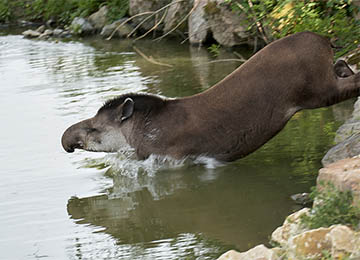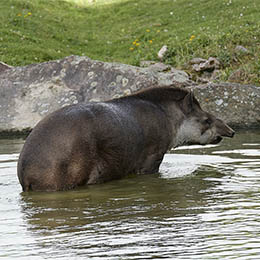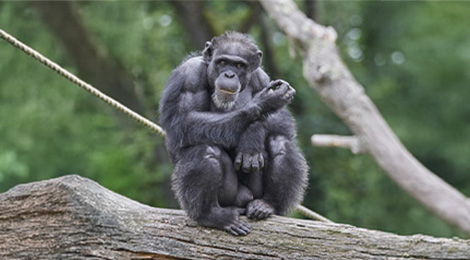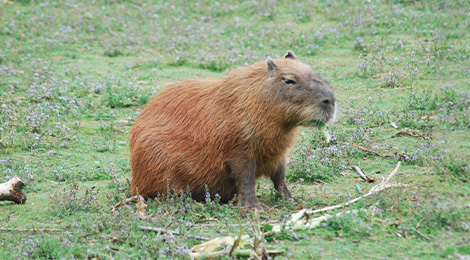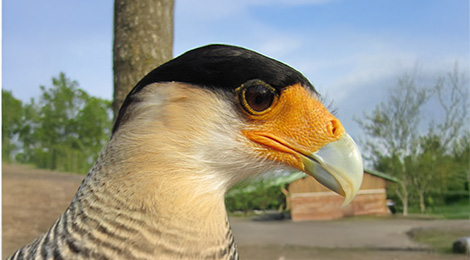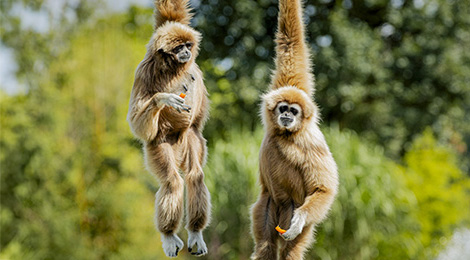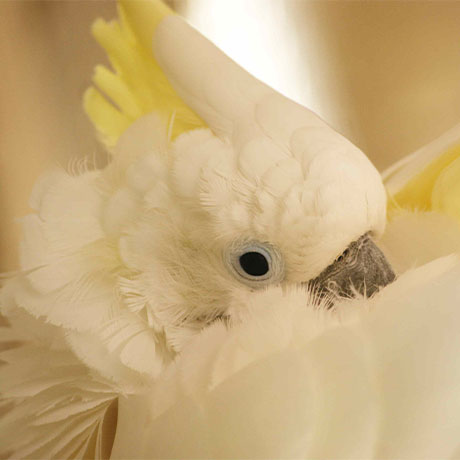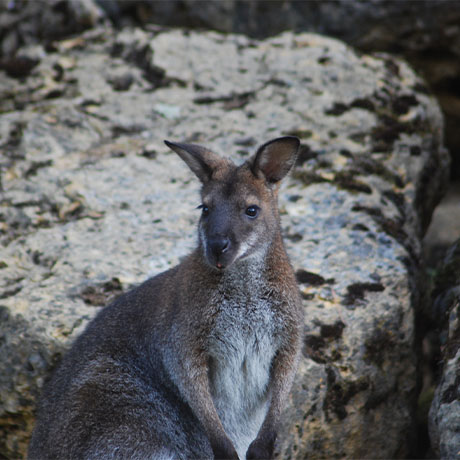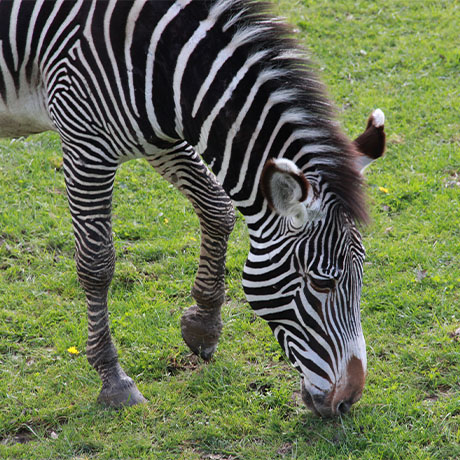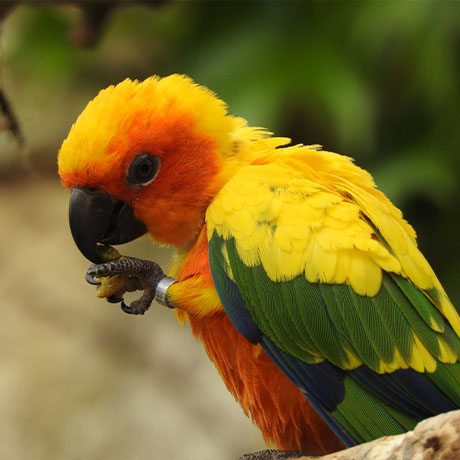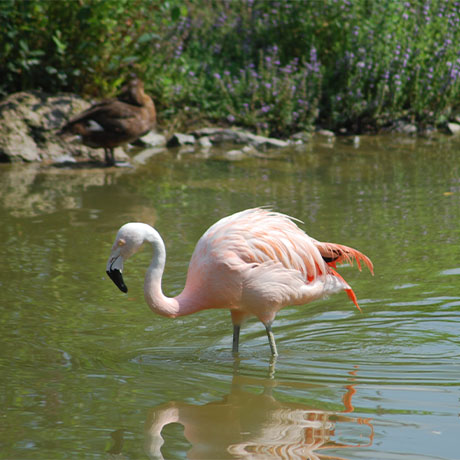A well developed sense of smell
Tapirs (4 toes on their front hooves, 3 on the rear) are related to the equidae (horses, donkeys and zebras) and rhinoceros families. Together, these three families form the perissodactyla order: non-ruminating ungulates with an odd number of toes. The tapir has a characteristic nasal organ and upper lip which form a short mobile trunk. This prehensile lip allows it to feed by selecting and grabbing leaves and branches. Its most developed sense is its sense of smell.
The tapir likes to be around water, and is an excellent swimmer and diver. When frightened, it seeks refuge in water. It is a solitary species. Males mark their territory with splashes of urine. As well as using olfactory communication, tapirs also communicate in proximity using whistling sounds. Females produce a single calf, which has a hide that is striped with white spots, providing camouflage in the forest. The tapir’s predators, apart from humans, include jaguars and to a lesser extent pumas.
Tapirs are found in many South American countries, but are most common in Brazil.
-
HabitatRainforest, near water or swamps.
-
Food
Leaves, bark, fruit, seeds, buds, shoots and branches.

Thanks to its exceptional sense of smell, the tapir is able to differentiate between more than 50 plant species.
A zoological reserve populated by Asian elephants, giraffes, lions, tigers, hippos, chimpanzees, gibbons, wolves, ostriches ... Animals evolving in their reconstituted natural environment, to discover as a family.
All animals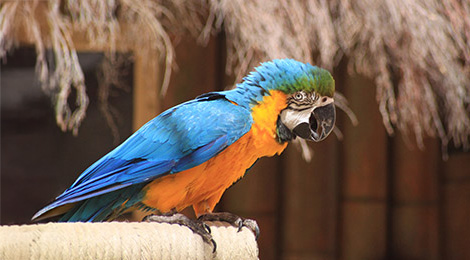
-
![]() Blue and yellow macaw Discover animal
Blue and yellow macaw Discover animal -
![]() Chimpanzee Discover animal
Chimpanzee Discover animal -
![]() Capybara Discover animal
Capybara Discover animal -
![]() Crested caracara Discover animal
Crested caracara Discover animal -
![]() Lar gibbon Discover animal
Lar gibbon Discover animal -
![Gros plan sur un Cacatoès à huppe jaune au parc animalier Le PAL en Auvergne]() Sulphur-crested cockatoo Discover animal
Sulphur-crested cockatoo Discover animal -
![Wallaby de Bennett au par Le PAL dans l'Allier]() Bennett's wallaby Discover animal
Bennett's wallaby Discover animal -
![Gros plan sur un zébre de Grévy qui broute de l'herbe]() Zebra of Grevy Discover animal
Zebra of Grevy Discover animal -
![Gros plan sur une Conure soleil et son plumage coloré au parc animalier Le PAL]() Sun parakeet Discover animal
Sun parakeet Discover animal -
![Flamant du Chili debout dans l'eau au parc animalier Le PAL]() Chilean flamingo Discover animal
Chilean flamingo Discover animal



